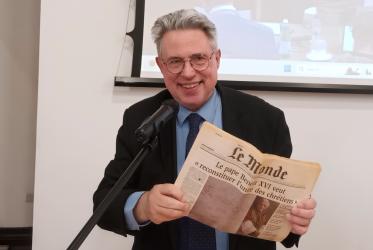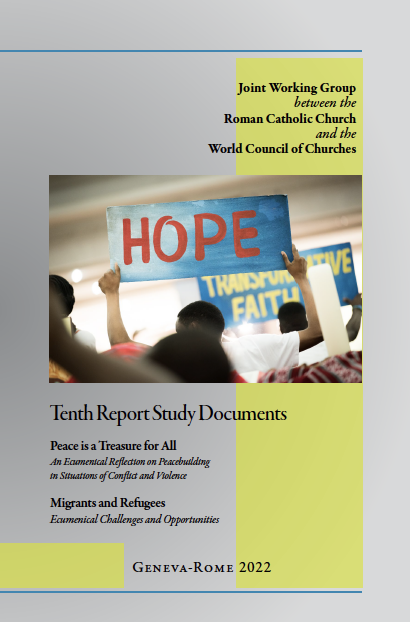Displaying 1 - 16 of 16
HIV and AIDS Civil Society Networks and the Faith Sector
Lessons Learnt from Strategic Engagement in India, Dominican Republic, Indonesia, and Jamaica
31 January 2023
Assembly workshop looked toward ending AIDS epidemic by 2030
19 September 2022
Tenth Report Study Documents
19 August 2022
Walking, Praying and Working Together
10th Report of the Joint Working Group of the WCC and the Roman Catholic Church
18 August 2022
Growth in Agreement IV:
International Dialogue Texts and Agreed Statements, 2004–2014, Volumes 1 and 2
01 February 2017













